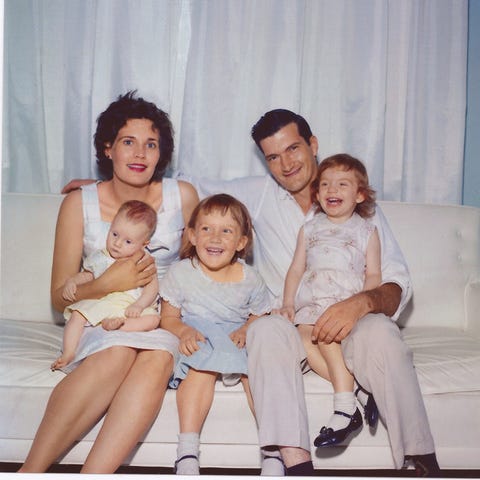The Glass Castle, a memoir, relays Jeannette Wall’s experience growing up in an impoverished, eccentric family. The Walls move from state to state as debts collect and jobs terminate, but the four children determine to be and do differently than their well-intentioned yet negligent parents. The book far exceeds the movie in elegance and detail. Although most of the movie details ring accurate, the movie softens and scrambles the particulars. It also fails to portray the extremity of the Walls’ rootless existence, the string of lost jobs, the full extent of parental neglect, the passive attitude toward sexual abuse, the frequent betrayals, and the constant hunger that bore down on the children.
- Jeannette Walls Glass Castle Quotes
- Jeannette Glass Castle Falls
- Is The Glass Castle A Successful Memoir
- Jeannette Glass Castle Va
Jeannette Walls Glass Castle Quotes
The family’s struggle directly stems from the inefficiencies of Mary Rose and Rex Walls. Absorbed in her self-declared artistic and literary talent, Mary Rose views motherhood as a distraction from her true calling. Although licensed to teach, she refuses to work even as her children starve. Although in possession of valuable jewelry and tracts of land valued at a million dollars, she refuses to liquidate her assets by reason of sentimentality and morale. When Jeannette shares her plan to move to New York her senior year of high school, Mary Rose weeps in jealousy. Mary Rose fails to see the worth or responsibility of parenting, so the children must raise themselves.

Rex Walls fails to protect and provide for his children, and the memoir strongly revolves around Jeannette’s relationship with him. As his favorite child and kindred spirit, Jeannette continues to believe in him long after everyone else turns away. Two repeating images surface throughout the narrative and define Jeannette’s enduring relationship with her father: the Glass Castle and fire.

Jeannette Glass Castle Falls
Download 'The Glass Castle Book Summary, by Jeannette Walls' as PDF. Want to get the main points of The Glass Castle in 20 minutes or less? Read the world’s #1 book summary of The Glass Castle by Jeannette Walls here. Read a quick 1-Page Summary, a Full Summary, or watch video summaries curated by our expert team. The Glass Castle A Memoir Jeannette Walls SCRIBNER New York London Toronto Sydney Acknowledgments I'd like to thank my brother, Brian, for standing by me when we were growing up and while I wrote this. I'm also grateful to my mother for believing in art and truth and for supporting the idea of the book; to. In The Glass Castle (2005) by Jeannette Walls, Walls demonstrates a child’s ability to develop resilience in the face of trouble, early autonomy, and finally forgiveness for all the hurt inflicted. Jeannette opts not to live a bitter life holding grudges against her parents, although they are the responsible ones for her childhood sorrows.
The planning of the Glass Castle marks the joys and hardships of Jeannette’s relationship with her father. Dylan Thomas’ poem preceding the memoir aptly captures the essence of the Glass Castle: “Dark is a way and light is a place, Heaven that never was/ Nor will be ever is always true.” Rex Walls carries around elaborate blueprints for the design of a special home made entirely of glass complete with a glass, solar roof. The Glass Castle seems an elusive dream, but a dream neither proven nor disproven rendering it an undeniable truth of what could be if the Wall’s family worked together. If they just had enough funds, the perfect land, a solid foundation, detailed blueprints, accurate technology then they could break ground. The Glass Castle sits just out of reach yet just within hope and provides a shared vision for a better future together. Whenever things grow tough, Rex pulls out the plans to tinker and adjust and dream with his “mountain goat” Jeannette. On his deathbed, her father expresses regret for never building the house, but Jeanette counters, “We had fun planning it” (279). Although Rex perpetually struggles to follow through, he always means well.
Jeannette’s strong fascination with fire mirrors her strong pull toward her father. Jeannette grows obsessed with fire after incurring a serious burn injury at the age of three while cooking hot dogs. Consequently, she and her brother accidentally set fire to an abandoned shed and narrowly escape. As they watch the structure burn, Rex points out the shimmery invisible heat that hovers between the flames and the sky as the boundary between turbulence and order where no rules apply. This boundary perfectly reflects Rex: “dancing along the border between turbulence and order” (288). He gushes with charisma and intelligence but sinks in alcoholism and nonconformity. He tries to do the orderly thing, working a job and feeding his children, but he inevitably jettisons into turbulence, getting pickled, defying his boss, skedaddling with the family. Despite the pain and failures that mark her fiery, paternal relationship, Jeannette cannot help but love him: “But despite all the hell-raising and destruction and chaos he had created in our lives, I could not imagine what my life would be like—what the world would be like—without him in it. As awful as he could be, I always knew he loved me in a way no one else ever had” (279). Although Rex fails Jeannette in a million ways, his love and pride for her forges a bond that weathers the pain and difficulties.
Is The Glass Castle A Successful Memoir


Jeannette Glass Castle Va
Jeannette Wall’s life displays resiliency and courage in the face of nearly insurmountable difficulties. She demonstrates respect and forgiveness for parents who often fail her. She grants familial love and loyalty without expectation of return. She stands as a beautiful example of what one can accomplish with determination and hard work though her success was not without sacrifice and hard decisions. She reminds readers that no one has a perfect life, that beauty can be found in the imperfections and joy in the hardships, and that, above all, you only have one family.
